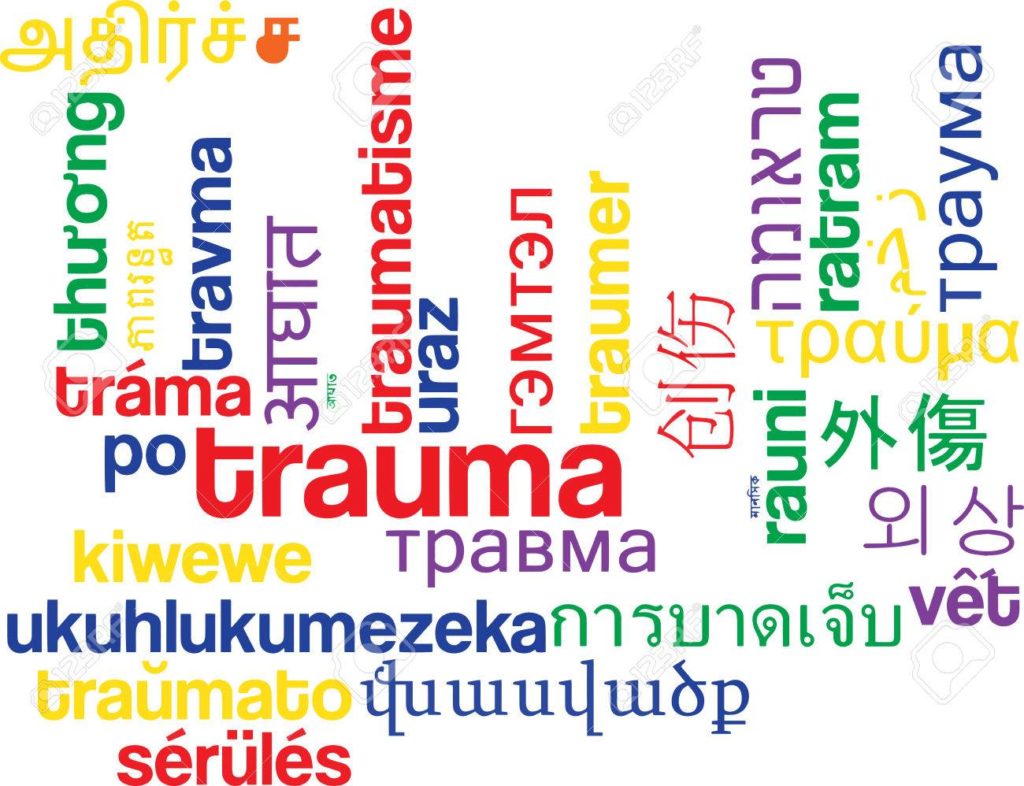
Over the past 20 years, treating the effects of trauma has become a priority in many of our county’s social services including: children and youth, drug and alcohol, the elderly, and mental health. Increased discussion on trauma has been impacted by decreased stigma, increased resources, and awareness of supportive and safe environments to discuss experiences that have had a debilitating impact. There has been tremendous progress regarding the treatment of trauma related impact as well as symptoms associated with past traumatic experiences increased by being aware of the language that is used.
PTSD, or Post Traumatic Stress Disorder was recognized by the American Psychological Association in 1980 within the third edition of the Diagnostic and Statistical Manual of Mental Disorders. Prior to this recognition, PTSD was referred to as “Battle Fatigue” or “Shell Shock” after soldiers returned home from Vietnam (Department of Veteran Affairs, 2018). With this recognition, research began to discover the effects of trauma on brain function. It was uncovered that three main parts of the brain are directly impacted by experiencing a traumatic event; the Prefrontal Cortex or “Thinking Center”, the Anterior Cingulate Cortex or “Emotional Regulation Center” and the Amygdala or the “Fear Center. When one has experienced trauma, their brain function begins to change the way that the body uses to protect itself. Within an individual experiencing trauma, their Thinking Center is under-activated. Their Emotional Regulation Center is under-activated, and their Fear Center is over-activated (Sweeton, 2017).
These changes in brain function lead to direct psychological changes including feelings of stress, fear, and irritation, difficulties feeling safe and falling asleep, as well as difficulties in concentration and attention. One or a combination of these direct effects on the brain can impact one’s ability to function; due to its impact, trauma is addressed through many social services including therapy, group therapy, support groups, and many others. With trauma affecting many individuals within the social services field, it is important to be aware of and practice appropriate and respectful language.
Five Primary Elements of Trauma-Informed Care include safety, transparency and trustworthiness, choice, collaboration and mutuality, and empowerment. Practicing safety with those impacted by trauma includes providing an environment where one feels safe emotionally, culturally, and physical. Safety also includes checking in with individuals and assessing for any changes in distress or unease. Transparency and trustworthiness includes providing accurate information to individuals on what is happening and what could occur in the future. This also includes being able to refer to other colleagues and knowledgeable sources to attain accurate information. Giving one the gift of choice includes respecting one’s self-efficacy and honoring their dignity regardless of our transference or bias. Collaboration and mutuality is honored through acknowledging that healing begins in relationships that are strengthened through shared decision making. Empowerment is supported through the strengths based perspective; providing recognition for one’s accomplished and strengths increased confidence and trust within self as well as others (Roger D. Fallot and Maxine Harris, 2006).
In addition to applying the components of trauma informed care, it is also important to practice appropriate and respectful language when working with those affected by trauma. It is important to note that every individual is unique and so is the language that will be used when working through their traumatic experiences. The use of the word “victim” may be triggering for some and can be altered to “survivor” or “one who has experienced trauma”. It is important to discuss the details of preferred terms with a client during the beginning of the relationship. This discussion will ensure safety as well as build rapport and trust within the first few interactions. The most important aspect of language in understanding the purpose behind the words and actions. Trauma informed care suggests the question, “what happened to you?” This question allows the client to know that they were not at fault for their traumatic experience and also allows open dialogue. This question also supports the importance of understanding the whole individual; focusing on the language as well as the reasoning behind their words and actions can allow for true understanding and communication ensuring further progress through trauma work.
As professionals in the social work field, great strides have been made towards research, acknowledgement, and treatment for those affected by trauma. Changing our language can allow individuals to feel safety, trust, genuineness, and hope that will allow further progress towards feeling supported while coping with their trauma.
By Casey Koch
Casey Koch is an Elder Victim Mobile Support counselor for The Lincoln Center for Family and Youth. Casey graduated from Temple University for Clinical Health and Mental Health and has a degree in social work. Casey has also worked with the geriatric population in a hospital setting.
